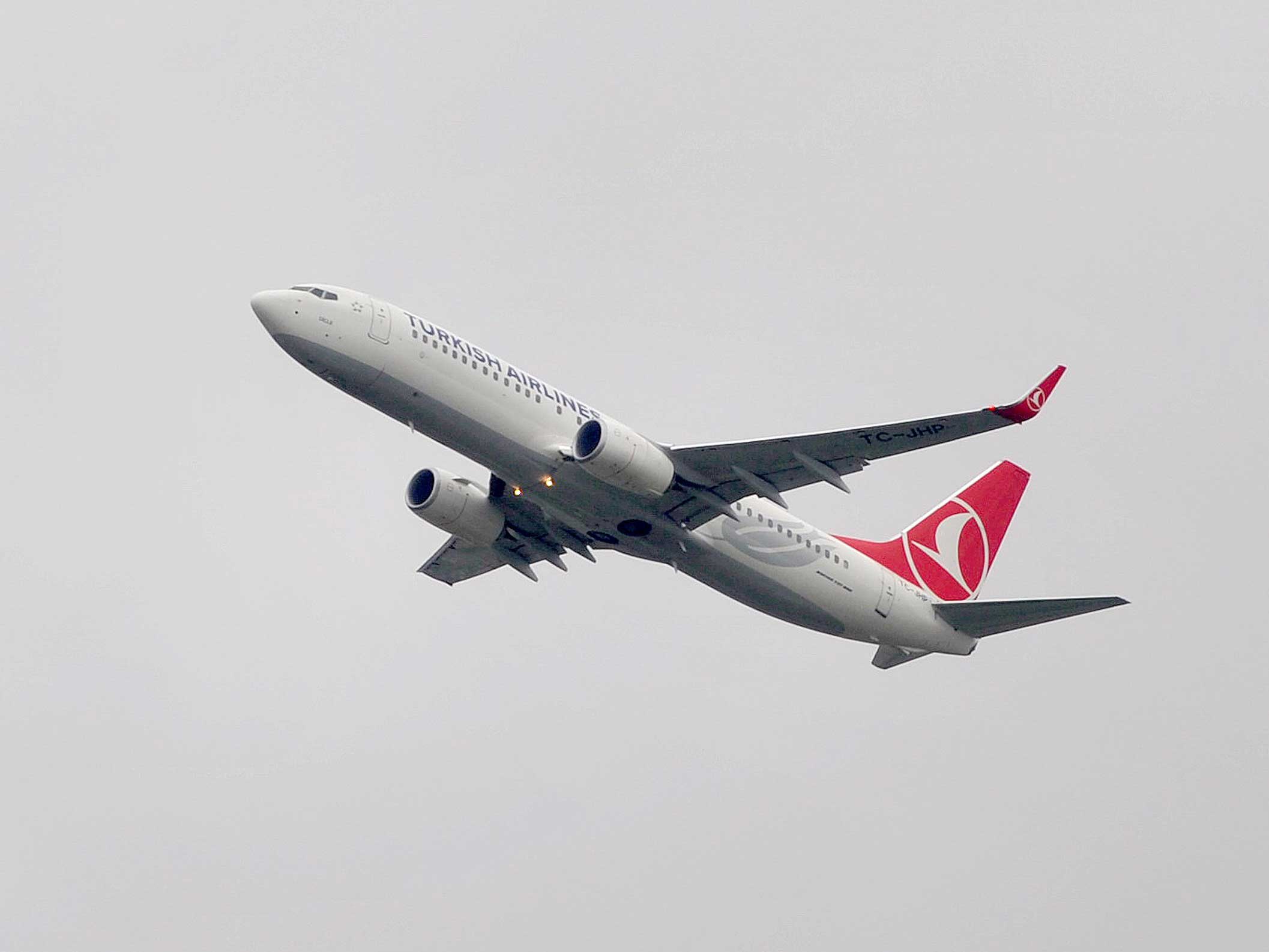The Independent's journalism is supported by our readers. When you purchase through links on our site, we may earn commission.
Turkish Airlines boss claims Istanbul laptop ban will be lifted by US
Turkish Airlines' chief executive, Bilal Eksi, expects the ban on devices to be lifted at his airline's main hub

Your support helps us to tell the story
From reproductive rights to climate change to Big Tech, The Independent is on the ground when the story is developing. Whether it's investigating the financials of Elon Musk's pro-Trump PAC or producing our latest documentary, 'The A Word', which shines a light on the American women fighting for reproductive rights, we know how important it is to parse out the facts from the messaging.
At such a critical moment in US history, we need reporters on the ground. Your donation allows us to keep sending journalists to speak to both sides of the story.
The Independent is trusted by Americans across the entire political spectrum. And unlike many other quality news outlets, we choose not to lock Americans out of our reporting and analysis with paywalls. We believe quality journalism should be available to everyone, paid for by those who can afford it.
Your support makes all the difference.The US “devices ban” on flights from certain Middle East and North African airlines is unravelling — though the UK has shown no intention of removing prohibitions on laptops and e-readers.
In March, the US Department for Homeland Security (DHS) abruptly introduced a ban on any electronic devices bigger than a mobile phone from the cabin of flights to the US from eight Middle Eastern and North African nations.
Services flying non-stop from the United Arab Emirates, Jordan, Egypt, Turkey, Saudi Arabia, Kuwait, Morocco and Qatar are covered by the ban. But on Monday the second airport in the UAE, Abu Dhabi, was deemed safe enough to relax the ban.
Now the chief executive of Turkish Airlines, Bilal Eksi, has tweeted that he expects the ban on larger electronic devices to be lifted for flights from Istanbul imminently. Eksi tweeted on 3 July: "The electronics ban that had been in place on US flights has been revoked as of 5th of July. Thank you." But the airline has not changed its existing statement explaining that larger electronic devices are banned from the cabin.
The ban was imposed, according to the DHS, in response to intelligence reports that terrorist groups were “aggressively pursuing innovative methods" to attack passenger planes, including “smuggling explosive devices in various consumer items”.
The UK Government quickly brought in a ban that emulated the US prohibition, though with a different list of countries: the UAE, Qatar and Morocco, which have frequent flights to Britain, were omitted, while Lebanon was added.
The main effect of the UK ban is on flights from Turkey. The Turkish Airlines' chief executive's tweet raised the hope that the Department for Transport might also relax the rules.
But a DfT spokesperson said: “It is for the US to determine its own security measures based on its own assessments, just as we do ourselves. We work closely with all our international partners to keep aviation security under constant review, but for obvious reasons we do not comment on specifics.
“The safety and security of the travelling public is our top priority, and the UK has some of the most robust aviation security measures in the world."
The US was keen to impose the devices ban on all international flights to the US, but European officials lobbied intensively against the prohibition — on the grounds that it posed additional risks with numerous lithium batteries packed in the hold.
Washington DC has now said airports worldwide must implement extra screening, including explosive trace detection, sniffer dogs and extra scrutiny of the gate area.
The moves come as tests of airport security checks conducted by undercover agents at Minneapolis-St Paul exposed serious weaknesses. A team from the DHS in Washington posed as ordinary passengers and successfully managed to sneak explosives, fake weapons and drugs past checkpoints on 17 out of 18 attempts.
Join our commenting forum
Join thought-provoking conversations, follow other Independent readers and see their replies
Comments